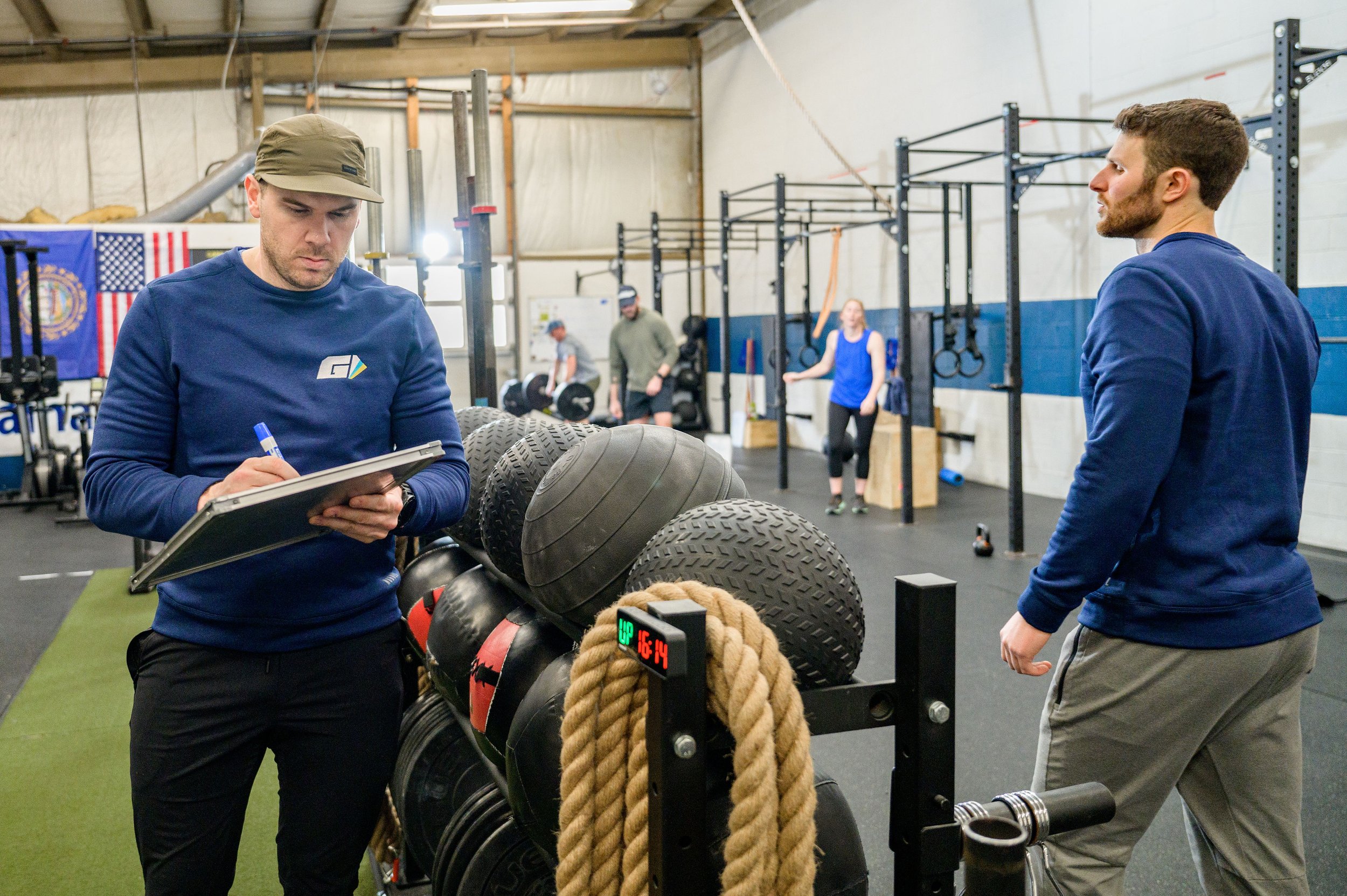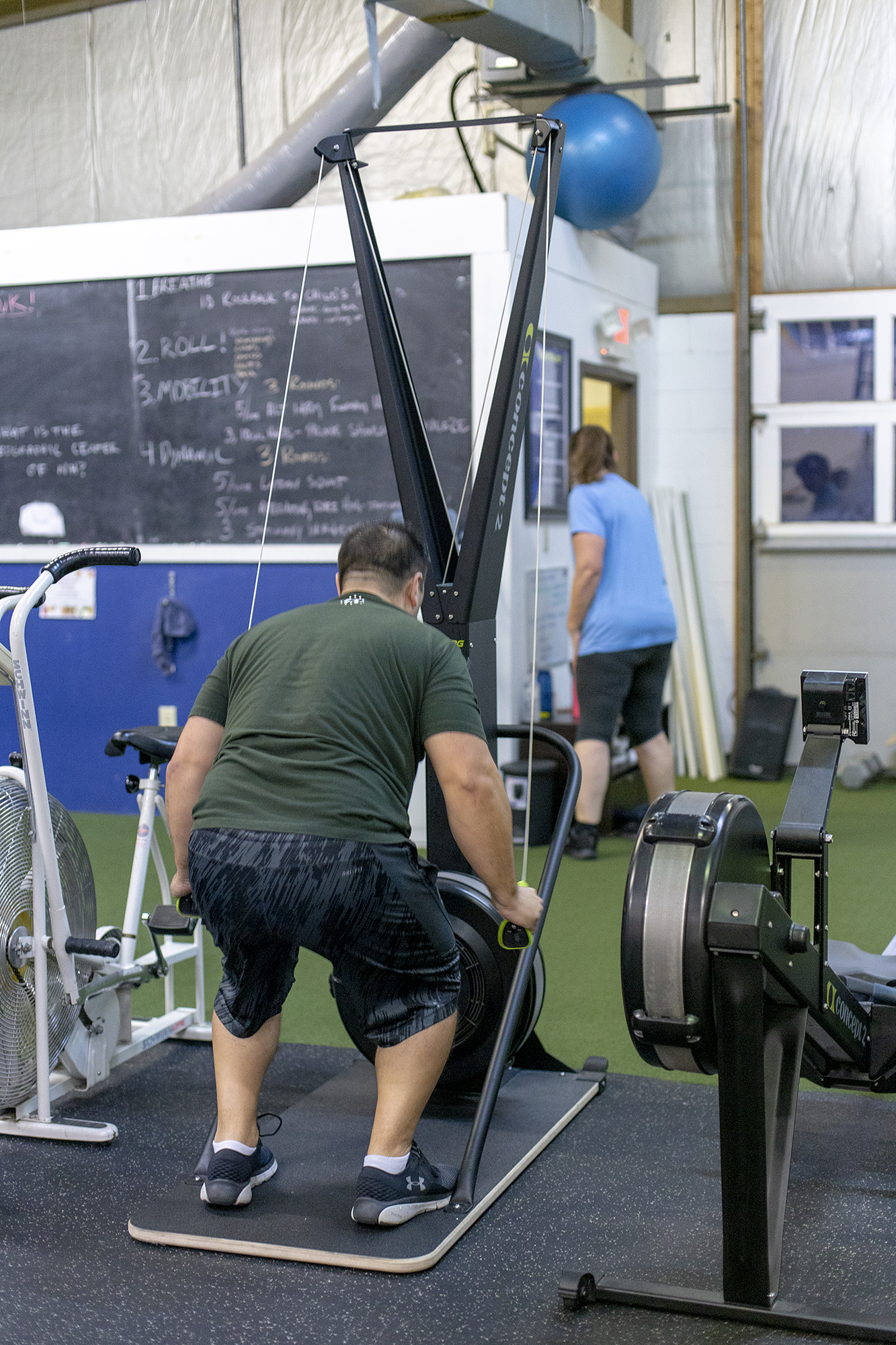
Welcome to the GAIN Blog
The blog is updated Monday-Friday. Tune in for posts and discussion about health, fitness, nutrition, training experiments and reflection. We share articles, videos and more. We post the link to our Instagram story every day, make sure to follow along there to never miss a post.
Simplicity
One of the things I appreciate most about running is the simplicity of it. You can do it anywhere, minimal equipment involved, bang for your buck workout, gets you outside.
It’s simple. We can complicate it with heart rate training, negative splits, weekly mileage and biomechanics of proper foot strike. At the heart of it, it’s about moving your body.
I have a Strength and Health Magazine from 1935 with an advertisement on the back explaining the effectiveness of “barbell training.” Simple and effect. Been around for a long time. It’s passed the test so to say.
We can complicate training with cool physiological terms we learn in school or with confusing directions for the most precise periodization scheme. At the heart of it, strength training is about your vs the bar. Lift with it, consistently and you’ll get stronger.
Sure, we can use 7 different types of machines to hit all the angles and muscle fibers you desire. Deadlifting once a week will get you to the same place. It takes the fluff out of it - no crazy routines, no expensive equipment. Just pick this bar up, lift it over your head, squat with it and you’re on your way to better health. Just like, lace up these shoes and go for a run.
Barbells, running (and of course yoga) have stood the test of time. Will flashy workout routines with strobe lights, loud music and boot camp style instructors last as long?
Justin Miner
@justin_miner_
Confirmation Bias
Last week, I challenged us all to ask better questions. I wrote that many of us ask questions, not to find answers, but instead, to justify what we all ready believe.
Confirmation bias is when we seek information that confirms our beliefs, ignoring information that contradicts it. In order for us to develop, we must be aware of our tendency to look at what we already believe to be true.
So what can we do instead? We can seek disconfirming information. By looking at disconfirming information we challenge our beliefs. We either learn something new, or have a better way to see if what we believe is best.
Recently, at a seminar, the speaker proposed a question to us to help seek disconfirming information:
How might I be wrong about this?
Using this as a screen can help you find the wholes in your game. There’s always something we can do better. For us at Gain, this is how we we continually improve our training programs. When we think we have it all figured out is when we’ll run into trouble.
Justin Miner
@justin_miner_
Asking Better Questions
We often look for simple solutions of complex problems. Yesterday’s post hit on that a bit. While I’m on my mission to understand my brain more, one of the things that keeps coming up is asking better questions.
Often, we ask questions not to seek answers, but to justify what we already believe.
“Gluten is bad for you, right?” Or “It’s okay that I only get 6.5 hours of sleep, right?”
My challenge to you (and myself), is to ask better questions. Instead of asking questions that justify our beliefs, let’s ask questions to find information that contradicts what we already believe.
Justin Miner
@justin_miner_
Change Challenges
We all know change is hard because we, all the time, try to change things only to fail after a while. Maybe we even change for a year but eventually get back to our old ways.
Our challenge to change, according to Ronald Heifetz, fall into two categories. Technical change problems and adaptive change problems.
Technical challenge:
There is known information out there for this. Someone has a protocol or a checklist or the solution can be found on Google. How to perform appendix surgery or land a plane are technical challenges. Regardless of how difficult they are, there are know solutions.
Adaptive challenges:
Require adjusting your mindset or perspective. They require you to see things differently and understand the challenge at a more complex level.
How many people say they need to lose 20 pounds but never do? There is no shortage of technical information available to them. They have access to Keto diets, paleo diets, vegan diets, intermittent fasting, gluten free, low carb, you name it. All the information is available. But they can’t change or change for a while and revert back.
This is an example of trying to solve an adaptive problem, I need to become healthier/lose weight, with a technical solution, a diet.
Some may have success with the technical solution too. So don’t think it can’t work that way. My challenge to you, is to see where in your life you are trying to use technical answers to adaptive challenges. Maybe think of a time that you did successfully change something, how did you solve it? Was the solution technical or adaptive?
For more, check out Immunity to Change by Kegan and Lahey and Leadership without Easy Answers by Hiefetz.
Justin Miner
@justin_miner_
Being Sick
Getting sick isn’t fun. It makes us miss work, social time and training sessions. We all hate feeling useless and that our bodies aren’t cooperating with us. I really hate it, I’m a baby when I’m sick because all I want to do is feel normal.
It makes us appreciate when we’re firing on all cylinders. This winter, I got sick for the first time in a while. I’ve dodged everything the past couple years and been able to keep healthy while everyone else has coughs and runny noses.
Both times happened when I was in a good training groove too. I’m a firm believer that when you are sick, you need to shut it down. Pushing through a workout usually makes it worse.
We need to find an advantage of getting laid up. I’ve got one for you: it’s time for your body to recover. Not just from the cold, but taking several days off from lifting and getting sweaty has it advantages too. I know it’s frustrating and you feel like you’re losing progress, but trust me, in the long run, it’s good for you.
A few days after each of my colds, I hit deadlift PR’s. That time off allowed my body to recharge and recover. I know while reading this it probably feels obvious. But we’ve all been there, feeling useless and lazy because we’re sick and can’t do anything.
If you’ve been fighting some stuff off this year, remember, it’s only temporary. Our bodies are amazingly resilient, you’ll come back stronger than before.
Justin Miner
@justin_miner_
Consistency
It’s hard to stick with something, even when we want to really bad. The problem, is that besides wanting to stick with the new thing, we don’t do anything else to set us up for success.
We say things like, I’m going to start going to the gym more, I’ll eat healthier this week or I’m going to write more blogs. Instead of having steps to accomplish this, we hope it just happens for us.
It’s not going to happen for us. We need to make it happen. If you want to go to the gym more, figure out a way to make yourself go. Maybe it’s writing on your calendar, telling all your friends or your coaches that you’re committed to it.
Here’s the part I struggle with: if you mess up, if you fail, it’s not a big deal.
It should make you mad, maybe a little down on yourself, but that doesn’t mean you need to stop all together. We let that fear of failure get in our way too often, I know I do for sure.
Let’s commit to sticking through things even if we fail. It’s the only way we’ll develop consistency.






